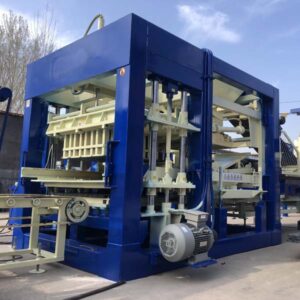
Title: **Transforming Transactions: Implementing Smart Contracts for Full-Automatic Block Trade**
Introduction:
As industries embrace digitization and blockchain technology, the full-automatic block trade sector is poised for a significant transformation. Smart contracts, self-executing agreements with predefined rules written into code, offer a streamlined and transparent approach to transactions. This article explores the implementation of smart contracts in full-automatic block trade, illustrating how this innovation enhances efficiency, security, and trust within the industry.
1. **Understanding Smart Contracts:**
Smart contracts are programmable contracts that automatically execute predefined actions when specific conditions are met. In the context of full-automatic block trade, these contracts can facilitate, automate, and secure various aspects of the transaction process, from order placement to payment settlement.
2. **Order Placement and Verification:**
Smart contracts can automate the order placement process in full-automatic block trade. When a buyer initiates a purchase order, the smart contract can automatically verify the availability of the desired blocks in the inventory, ensuring that the order can be fulfilled. This reduces manual intervention, minimizes errors, and accelerates the transaction cycle.
3. **Automated Payment Settlement:**
One of the key advantages of smart contracts is their ability to automate payment settlements. Once the conditions specified in the contract are met, such as successful delivery and inspection of the blocks, the smart contract can trigger the automatic transfer of funds from the buyer to the seller. This instantaneous settlement reduces transaction time and eliminates the need for intermediaries.
4. **Real-Time Tracking and Transparency:**
Smart contracts enable real-time tracking of the full-automatic block trade process. Each stage of the transaction, from order initiation to delivery and payment, is recorded on the blockchain. This transparent and immutable ledger provides all stakeholders with real-time visibility into the status of the transaction, fostering trust and accountability.
5. **Conditional Escrow Mechanisms:**
To address potential disputes or unforeseen circumstances in full-automatic block trade, smart contracts can incorporate conditional escrow mechanisms. Funds can be held in escrow until predefined conditions are met, ensuring that both parties fulfill their obligations before the final settlement. This adds an extra layer of security and confidence in the trade process.
6. **Supply Chain Integration:**
Smart contracts can be integrated into the broader supply chain, connecting various stakeholders such as manufacturers, distributors, and retailers. This integration streamlines the entire value chain, ensuring that each participant adheres to predefined rules and conditions. The result is a more synchronized and efficient full-automatic block trade ecosystem.
7. **Reduction of Fraud and Errors:**
The transparency and immutability of blockchain, coupled with the automation capabilities of smart contracts, significantly reduce the risk of fraud and errors in full-automatic block trade. Every transaction detail is recorded on the blockchain, making it nearly impossible for malicious actors to manipulate information. This increased security instills confidence in the trade process.
8. **Cost Efficiency and Disintermediation:**
Implementing smart contracts in full-automatic block trade leads to cost savings by reducing the need for intermediaries and manual processes. The automated nature of smart contracts eliminates the costs associated with traditional transaction methods, such as paperwork, verification, and third-party services. This cost efficiency benefits both buyers and sellers in the trade.
Conclusion:
The implementation of smart contracts in full-automatic block trade represents a paradigm shift in the way transactions are conducted within the industry. By automating processes, enhancing transparency, and reducing the risk of fraud, smart contracts streamline trade operations, making them more efficient, secure, and cost-effective. As the industry continues to embrace blockchain technology, the adoption of smart contracts is set to become a cornerstone in reshaping the future of full-automatic block trade.
